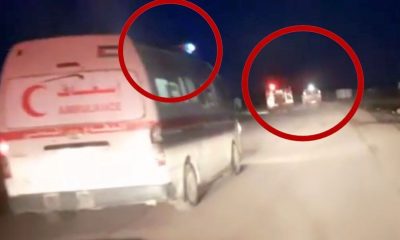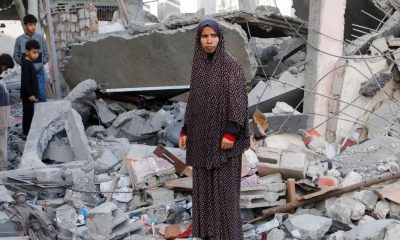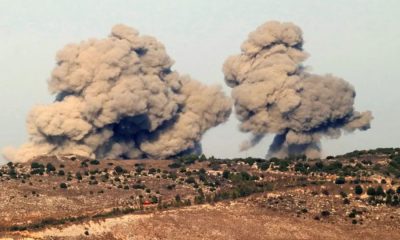International
US, allies prepare to defend Israel, Netanyahu in ‘multi-front war’ with Iran

US, allies prepare to defend Israel, Netanyahu in ‘multi-front war’ with Iran
TEL AVIV, Israel: Israel is already in a “multi-front war” with Iran and its proxies, Israeli Prime Minister Benjamin Netanyahu told a Cabinet meeting Sunday, as the United States and allies prepared to defend Israel from an expected counterstrike and prevent an even more destructive regional conflict.
Tensions have soared following nearly 10 months of war in Gaza and the killing last week of a senior Hezbollah commander in Lebanon and Hamas’ top political leader in Iran. Iran and its allies have blamed Israel and threatened retaliation. Hamas says it has begun discussions on choosing a new leader.
Netanyahu said Israel was ready for any scenario. Jordan’s foreign minister was making a rare trip to Iran as part of diplomatic efforts — “We want the escalation to end,” Ayman Safadi said — while the Pentagon has moved significant assets to the region.
“We are doing everything possible to make sure that this situation does not boil over,” White House deputy national security adviser Jon Finer told ABC.
In Israel, some prepared bomb shelters and recalled Iran’s unprecedented direct military assault in April following a suspected Israeli strike that killed two Iranian generals. Israel said almost all the drones and ballistic and cruise missiles were intercepted.
A stabbing attack on Sunday near Tel Aviv killed a woman in her 70s and an 80-year-old man, according to Israel’s Magen David Adom rescue service, and two others were wounded. The police said the attack was carried out by a Palestinian militant, who was “neutralized.”
Inside Gaza, the Health Ministry said at least 25 people were killed and 19 others injured when Israel struck two schools in Gaza City. AP video showed at least one child among the dead. Israel’s military, which regularly accuses Palestinian militants of sheltering in civilian areas, said it hit Hamas command centers.
“As you can see, there is no equipment to recover the injured. Rescuers are digging with their hands,” said one man, Yusuf Al-Mashharawi.
READ ALSO:
- Kamala Harris set to name running mate ahead of swing state tour
- Protesters threaten greater showdown, business shutdown after Tinubu broadcast
- Mali cuts diplomatic ties with Ukraine over Wagner ambush claims
Earlier, Israeli strikes killed at least 18 people. One hit a tent camp for thousands of displaced Palestinians in the courtyard of Al-Aqsa Martyrs Hospital, killing four people, including one woman, the Health Ministry said. The Israeli military said it targeted a Palestinian militant in the strike, which it said caused secondary explosions, “indicating the presence of weaponry in the area.”
The hospital in Deir Al-Balah is the main medical facility operating in central Gaza as many others in the territory no longer function. A separate strike on a home near Deir Al-Balah killed a girl and her parents, according to the hospital.
Another strike flattened a house in northern Gaza, killing at least eight, including three children, their parents and their grandmother, according to the Health Ministry. Another three people were killed in a strike on a vehicle in Gaza City, according to Civil Defense first responders.
Palestinian militants in Gaza fired at least five projectiles at Israeli communities near the border without causing casualties or damage, the military said. The military later told people in some parts of the southern Gaza city of Khan Younis to evacuate.
The Health Ministry also said an Israeli strike on Saturday at a school-turned-shelter in Gaza City killed at least 16 people. Israel’s military said it struck a Hamas command center.
The war in Gaza was triggered by Hamas’ Oct. 7 attack into Israel that killed some 1,200 people, mostly civilians, and took around 250 people hostage.
Israel’s massive offensive in response has killed at least 39,580 Palestinians, according to Gaza’s Health Ministry, which does not distinguish between civilians and combatants. Heavy airstrikes and ground operations have caused widespread destruction and displaced the vast majority of Gaza’s 2.3 million people, often multiple times.
The militant group Hezbollah and Israel have continued to trade fire along the Lebanon border since the war began, with the severity growing in recent months. The Lebanese state-run National News Agency said an Israeli strike targeted a house in Beit Lef, and the Lebanese Health Ministry said two people were critically wounded.
Hezbollah says it’s aimed at relieving pressure on fellow Iran-backed ally Hamas. A growing number of countries, including the US, are encouraging citizens to leave Lebanon after last week’s killing of a senior commander.
US, allies prepare to defend Israel, Netanyahu in ‘multi-front war’ with Iran
ARAB NEWS
International
US announces new visa requirements for Nigerian applicants

US announces new visa requirements for Nigerian applicants
The U.S Mission in Nigeria has listed new requirements for visa applications at its Abuja and Lagos embassies starting from April 22, 2025.
The Mission announced the new requirements in a short statement published on its X handle on titled Important update for Visa Applicants.
Read the new requirements for applicants for U.S visa from Nigeria below
Visa Interviews: Starting April 22, 2025, all visa applicants in Abuja and Lagos must bring a DS-160 visa application form with a confirmation/barcode number (starting with AA and followed by 00 – two zeroes) that matches the one used to make their appointment online. You also must make your appointment in the location you selected when filling out your DS-160.
Matching Barcode Numbers: If the confirmation/barcode number on your DS-160 form does not match the one you used to book your appointment, you will not be allowed to enter the Consular Section or attend your visa interview.
READ ALSO:
- Troops repel terrorists’ ambush in Borno major city
- Bauchi man arrested for impregnating 17-year-old daughter
- Rivers emergency rule: NBA moves annual conference from PH to Enugu
Double-Check Your Information: At least two weeks before your interview, please double-check that the barcode number on your DS-160 form matches the one you used to schedule your appointment. You cannot reuse a DS-160 from a previous application.
Correcting DS-160 Barcode: If your DS-160 barcode is incorrect, you must log into your AVITS account at at least 10 days before your appointment to create a support ticket requesting correction of your barcode number.
Rescheduling Appointments: If you are turned away from your appointment because your barcode numbers do not match, once you correct the problem, you will need to book a new appointment to proceed with your visa application. You may book a new appointment by logging into your AVITS account at If your visa fee has expired, you may have to pay a new fee before booking.
US announces new visa requirements for Nigerian applicants
International
EU approves 1st retaliatory tariffs on U.S. imports

EU approves 1st retaliatory tariffs on U.S. imports
EU member states on Wednesday approved initial retaliatory tariffs of 10 per cent to 25 per cent on U.S. imports, which the European Commission says will be implemented next week.
This includes special levies on items such as jeans and motorcycles from the United States, while U.S.-made whiskey and other alcoholic beverages were removed from the commission’s proposed list.
Further counter-tariffs are due to be imposed in mid-May and at the end of the year, affecting products including beef, poultry and citrus fruits such as oranges or grapefruit.
Additional tariffs on nuts and soybeans are planned for early December.
READ ALSO:
- Israeli strikes kill 20 in fresh attack on Gaza
- Nigeria spends over $21,000 to train one doctor — Health Minister
- Dominican Republic: At least 98 die in club roof collapse
The tariffs approved on Wednesday are in response to the U.S. tariffs on steel and aluminium imports imposed about a month ago.
According to EU calculations, the U.S. measures affect exports worth 26 billion euros (28.8 billion U.S. dollars).
The measures being imposed by Brussels target goods worth approximately 21 billion euros, according to EU sources.
The EU has stressed its preference for negotiations rather than escalating the trade dispute.
Work is still under way on a further package of measures in response to the tariffs on cars and almost all other EU exports to the U.S. more recently announced by President Donald Trump.
Trump’s tariff policy aims to correct alleged trade imbalances and shift production to the United States, while partially offsetting tax cuts promised during his election campaign.
EU approves 1st retaliatory tariffs on U.S. imports
dpa/NAN
International
Israeli strikes kill 20 in fresh attack on Gaza

Israeli strikes kill 20 in fresh attack on Gaza
Gaza’s civil defence agency said an Israeli strike on a residential building in the Shujaiya area of Gaza City killed at least 20 people on Wednesday, as the military said they were looking into the attack.
The agency’s spokesman, Mahmud Bassal told AFP the strike resulted in “20 martyrs and more than 40 injured” and the search for bodies in the rubble was ongoing.
Israel resumed intense strikes on the Gaza Strip on March 18, ending a two-month ceasefire with Hamas. Efforts to restore the truce have so far failed.
The health ministry in the Hamas-run territory said on Wednesday that at least 1,482 Palestinians have been killed in the renewed Israeli operations, taking the overall death toll since the start of the war to 50,846.
READ ALSO:
- Nigeria spends over $21,000 to train one doctor — Health Minister
- Dominican Republic: At least 98 die in club roof collapse
- Real Madrid can pull comeback against Arsenal, Mbappe confident
Hamas’s October 2023 attack that triggered the war resulted in the deaths of 1,218 people on the Israeli side, mostly civilians, according to an AFP tally based on Israeli official figures.
Hossam Badran, a member of Hamas’s political bureau, told AFP on Tuesday that it was “necessary to reach a ceasefire” in Gaza.
He added that “communication with the mediators is still ongoing” but that “so far, there are no new proposals”.
Badran said Hamas “is open to all ideas that would lead to a ceasefire and stop the genocide enacted against our Palestinian people”.
US President Donald Trump and Israeli Prime Minister Benjamin Netanyahu said on Monday that new negotiations were in the works aimed at getting more hostages released from captivity in Gaza.
Of the 251 hostages seized during Hamas’s attack on Israel, 58 are still held in Gaza, including 34 the Israeli military says are dead.
Israeli strikes kill 20 in fresh attack on Gaza
AFP
-

 metro1 day ago
metro1 day agoWhy Obi’s 15-year-old supporter is in prison — Lawyer
-

 metro2 days ago
metro2 days agoNigerian woman admires polygamy, seeks co-wife for husband
-

 Education1 day ago
Education1 day agoEasiest way to pass UTME, by JAMB registrar Oloyede
-
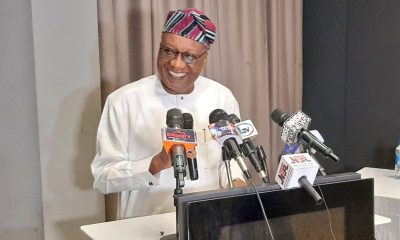
 metro1 day ago
metro1 day agoINEC names Sam Olumekun as acting chairman
-
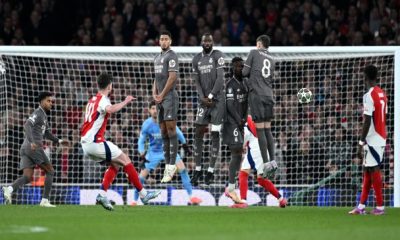
 Sports3 days ago
Sports3 days agoChampions League: Arsenal stun Real Madrid 3-0 as Rice delivers free-kick masterclass
-
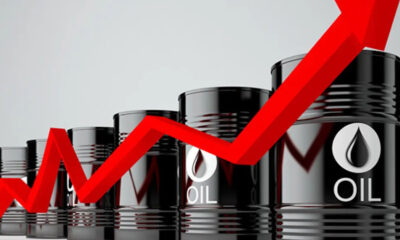
 Business1 day ago
Business1 day agoFear over 2025 FG revenue target after oil price crash
-

 metro2 days ago
metro2 days agoPerish your 2027 presidential ambitions, APC tells Atiku, el-Rufai
-

 Business2 days ago
Business2 days agoKenyan, Nigerian emerge winners at Pan-African Re/Insurance Journalism Awards in S’Africa

